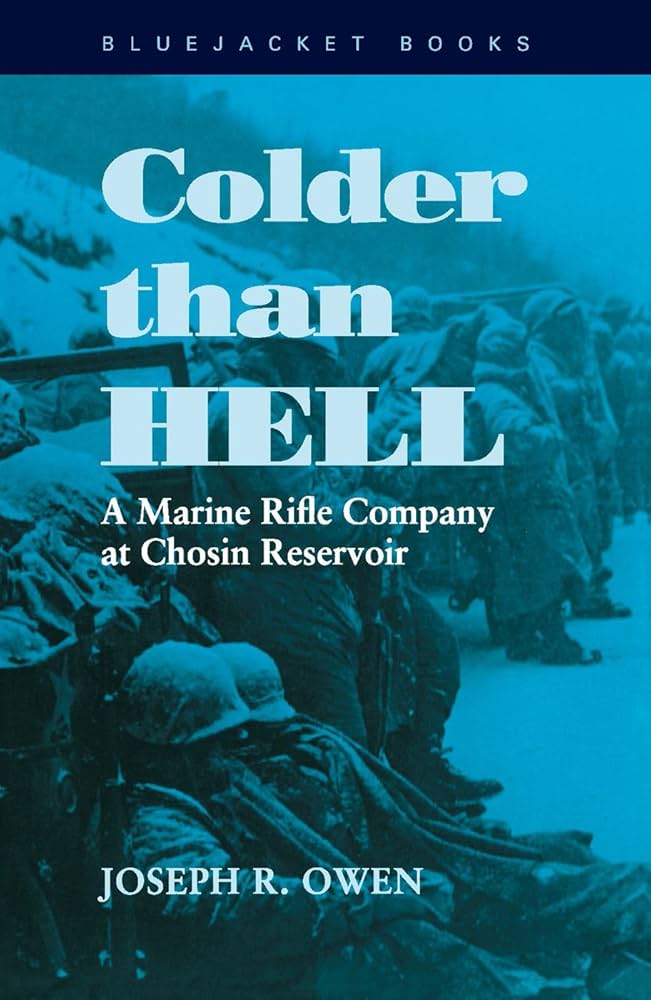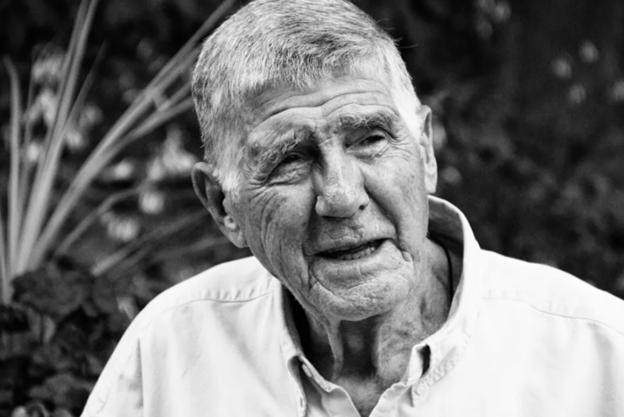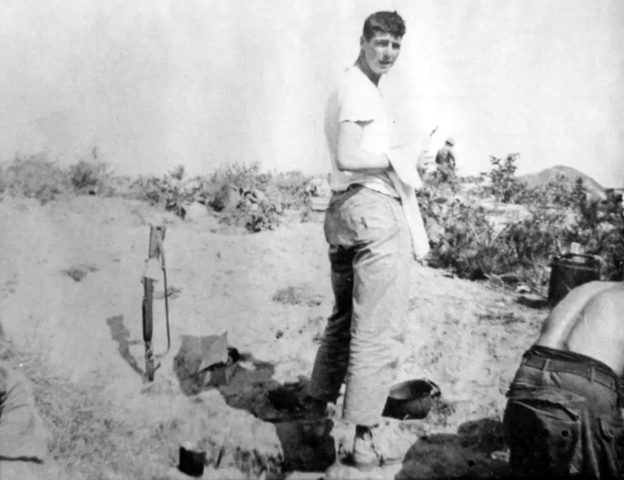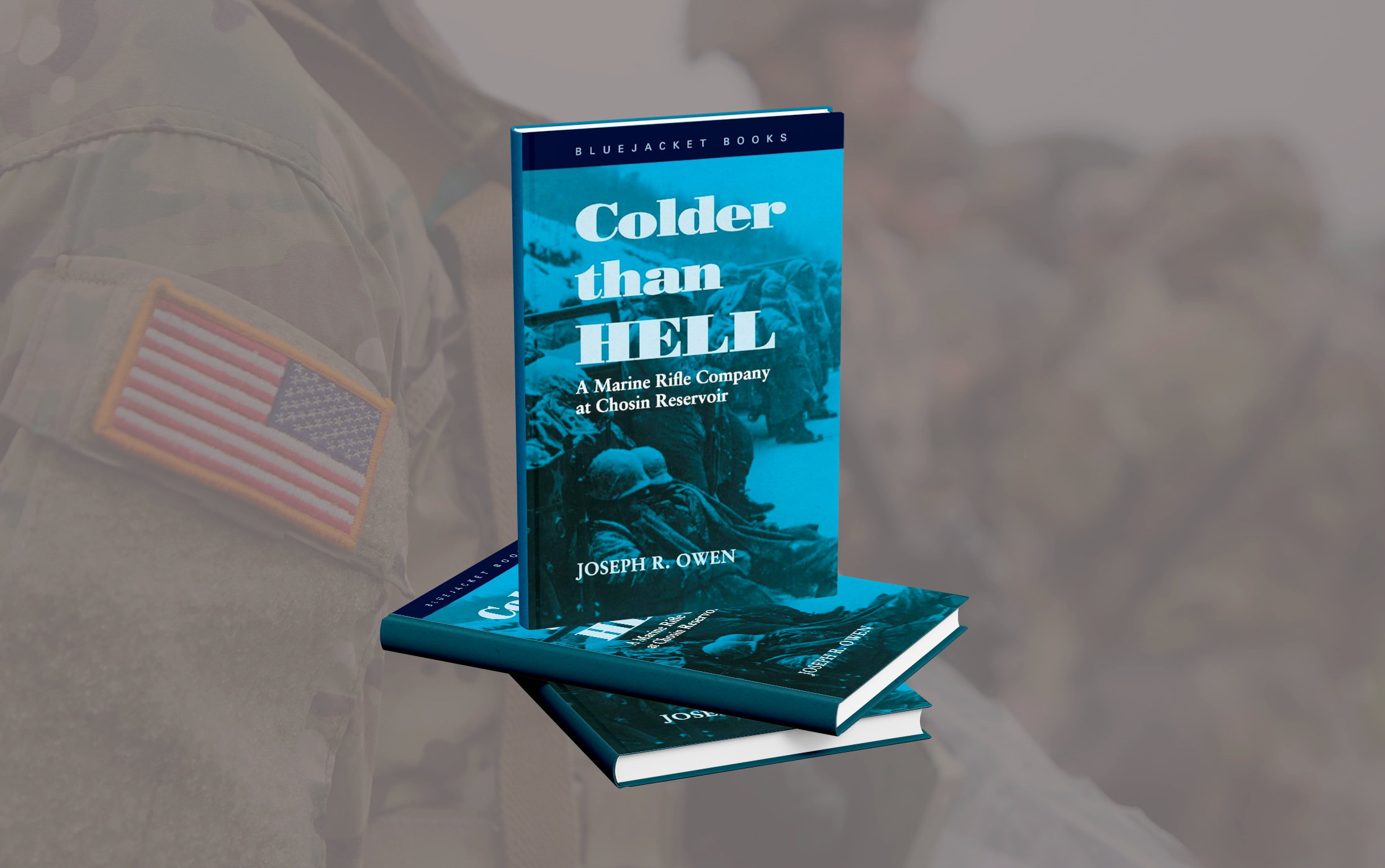Joe Owen enlisted in the U.S. Marine Corps in 1943. He deployed shortly afterward with a forward observer squad during World War II. If you talked to the man, however, you would quickly learn it was the Korean War that defined his service to the country. In 1997, he would literally write a book about his experiences in Korea, an experience that culminated with the infamous Battle of the Chosin Reservoir. By the time North Korean tanks rolled into South Korea in June 1950, Owen was a Lieutenant, and he would be leading a company of hastily assembled reservists into a trial by fire.

Joe Owen and His Harrowing Experience in “Colder Than Hell”
“Colder Than Hell: A Marine Rifle Company at Chosin Reservoir” is the story of Owen and his fellow Marines in Korea. To write the book, he painstakingly gathered all the historical information he could and spoke at length with his fellow veterans about their own experiences. The result is an exhaustive first-person narrative that is both engrossing and real; it is a monument to the men who fought and died in the earliest days of the Korean War – and a testament to why it should not be forgotten.
Owen led Baker Company, 7th Marines, 1st Marine Division from California to Korea in 1950. General Douglas MacArthur’ now-famous amphibious assault on Inchon relieved the United Nations forces that had been pushed all the way down to Pusan and nearly into the ocean by the oncoming North Koreans. The North Korean People’s Army (KPA) was undermanned and under-equipped, but the speed with which they invaded surprised the combined South Korean-American forces that summer.

United Nations troops, led by the United States, held a perimeter around Pusan for months as reinforcements and supplies arrived from Japan and the mainland United States. Just one day after the landing at Inchon, an American breakout from Pusan began. Seoul was recaptured by the Americans shortly after, and the North Korean Army effectively crumbled in the South and retreated North.
What followed was an almost lightning-fast invasion of North Korea by the combined UN-South Korean forces. By October 20, little more than a month after landing at Inchon, the United Nations captured the North Korean capital of Pyongyang. The KPA had been effectively destroyed in the advance and had disappeared into the mountains north of the city. What Owen and the rest of his Marines didn’t know was that China had intervened in the war, sending tens of thousands of troops across the Yalu River, North Korea’s border with China.
They also didn’t know that Chairman Mao had ordered the destruction of the 1st Marine Division. Owen and the Marines would meet the Chinese at the Chosin Reservoir, and he would vividly describe the fighting in his book, “Colder Than Hell.”
“When we were fighting in the cold, we couldn’t dig holes in the ground. It was completely frozen,” Owen recalled. “So we would take Chinese bodies, stack ’em up, and that would be our position. The sons of bitches would come at us and keep coming and keep going down, and they would be piled up, running over each other to get at us. The sons of bitches would never stop, so we had to keep on killing them. Can you imagine that?”

The Cold and Chaos of Chosin Reservoir in “Colder Than Hell
“Our Marines beat the enemy, position by position, with no safety margin and under heavy fire because the enemy could see everything we did,” Owen said in a 2014 interview. “So we had to keep our guys moving in the heavy snow and cold. The fatigue factor is serious. The guys forced themselves to keep going because they had to keep going, first for survival and because that was their nature. That’s the fighting spirit of Marine riflemen. That’s how we beat them.”
Owen’s account of the battle remains one of the most descriptive and realistic books ever written about the Korean War. It includes an account of Kurt Chew-Een Lee, the first Asian-American Marine Corps officer who fought alongside Owen. Joe Owen died in 2015, but his book remains an everlasting memorial to not only his own conduct in the Korean War but all the Marines who fought with him.
“Colder Than Hell: A Marine Rifle Company at Chosin Reservoir” is available in paperback, Kindle e-reader, and on audiobook, starting at $6.29 on Amazon, Barnes and Noble, and wherever books are sold.
Read About Other Book Reviews
If you enjoyed reading the review of ‘Colder Than Hell’ by Joseph Owen, we invite you to read about other military book reviews on our blog. You will also find profiles in courage, veterans’ service reflections, famous military units and more on the TogetherWeServed.com blog. If you are a veteran, find your military buddies, view historic boot camp photos, build a printable military service plaque, and more on TogetherWeServed.com today.

0 Comments